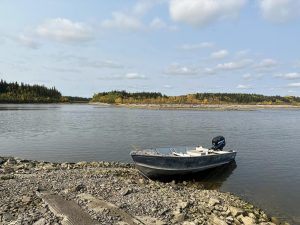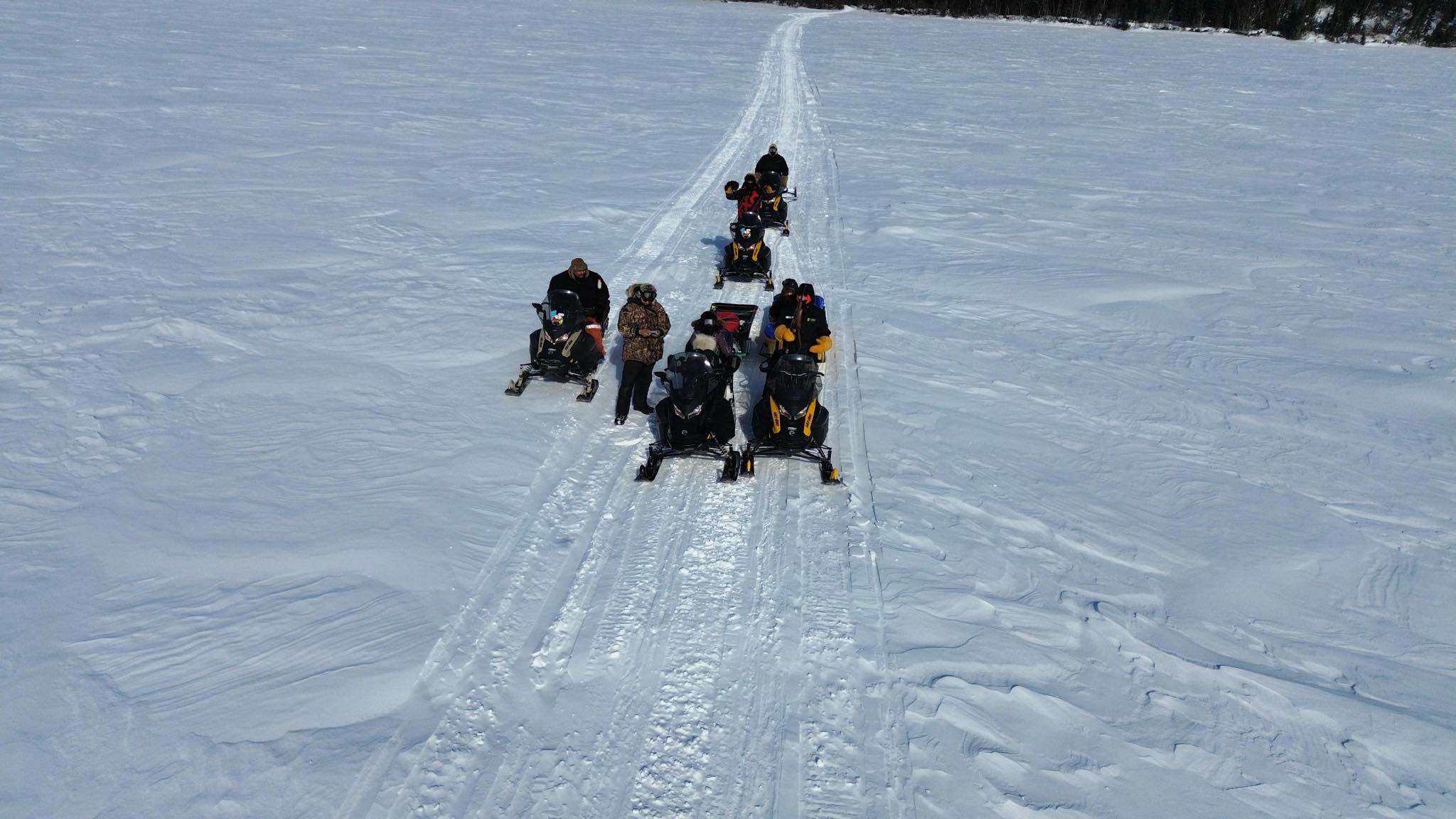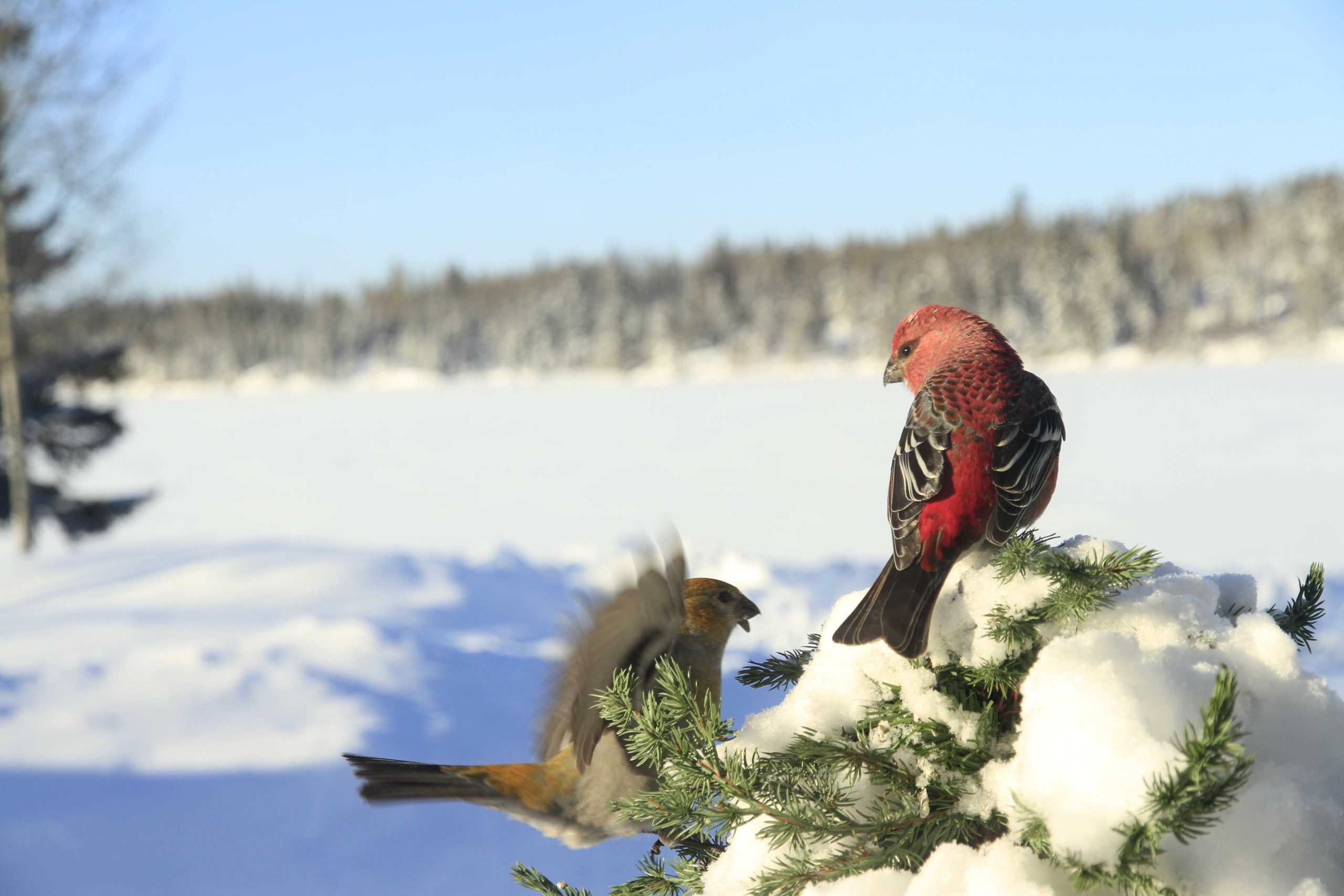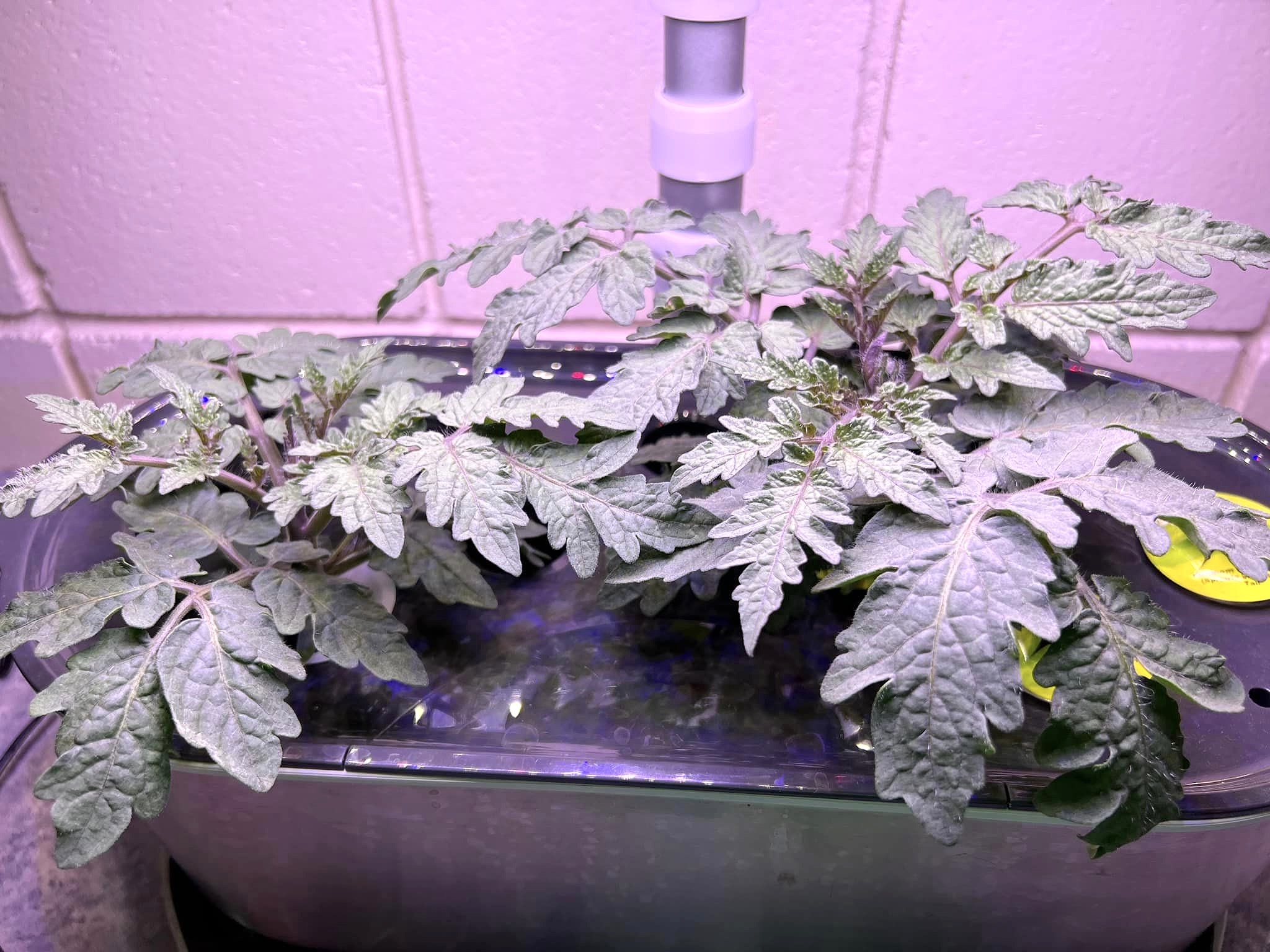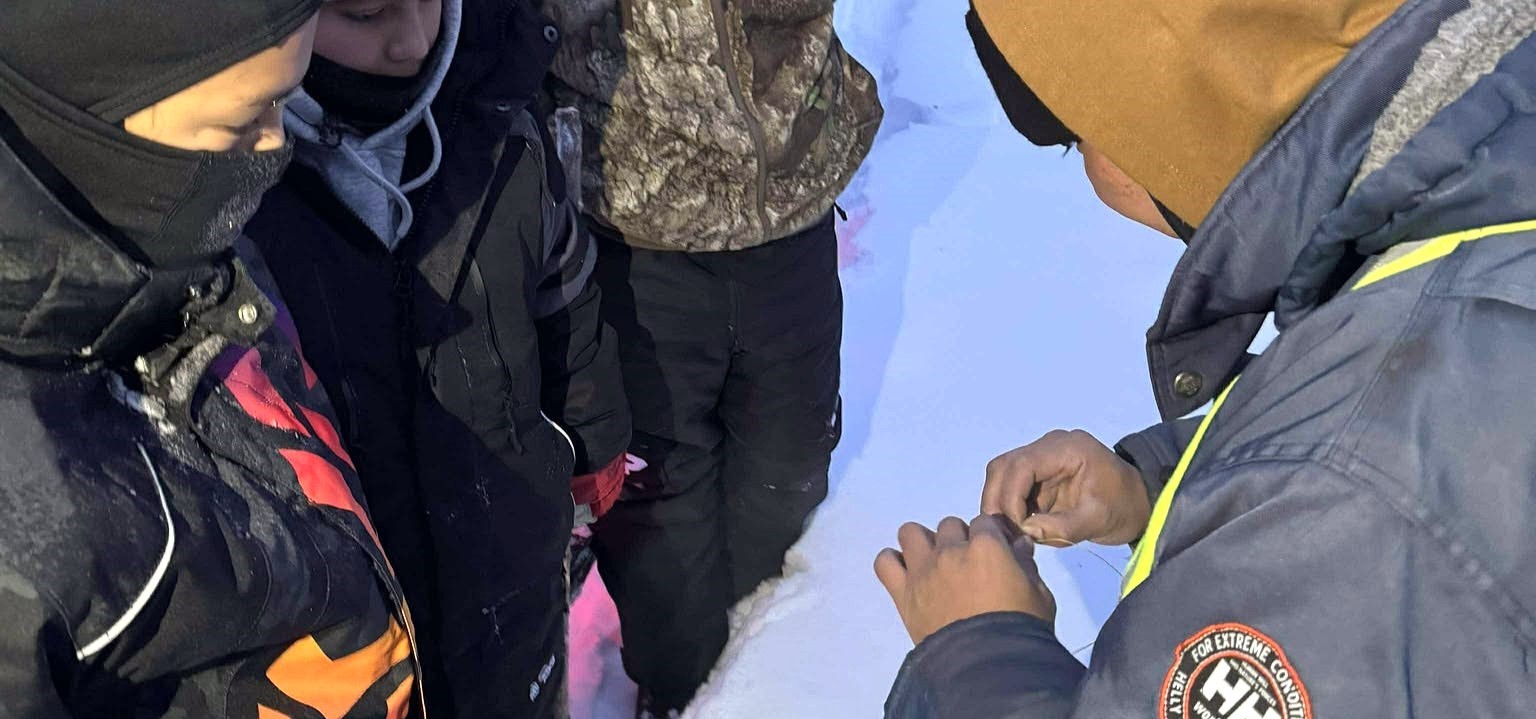Food Matters Manitoba (FMM) and Northern partners help to revitalize traditional Indigenous land–based education.
By: Chantal Marie Schromeda
** Photos courtesy of Lawrence Saunders, Lester Balfour, Myron Cook, and John Halkett.
In the early hours of the morning, Lawrence Saunders and his friend John would sneak out of grandma’s house in Kaweciwasihk (York Landing) so she wouldn’t hear. The young boys would quietly grab their fishing rods and head down to the dock. They waited for the elder Saunders called grandpa who would leave the house around 5 o’clock in the morning to go and check the nets for fish.
‘When we were kids we’d call him grandpa,” says Saunders, Food Matters Manitoba’s Community Project Coordinator. “I never really had my grandparents in my life, but they (grandma and grandpa) took me under their wing.”
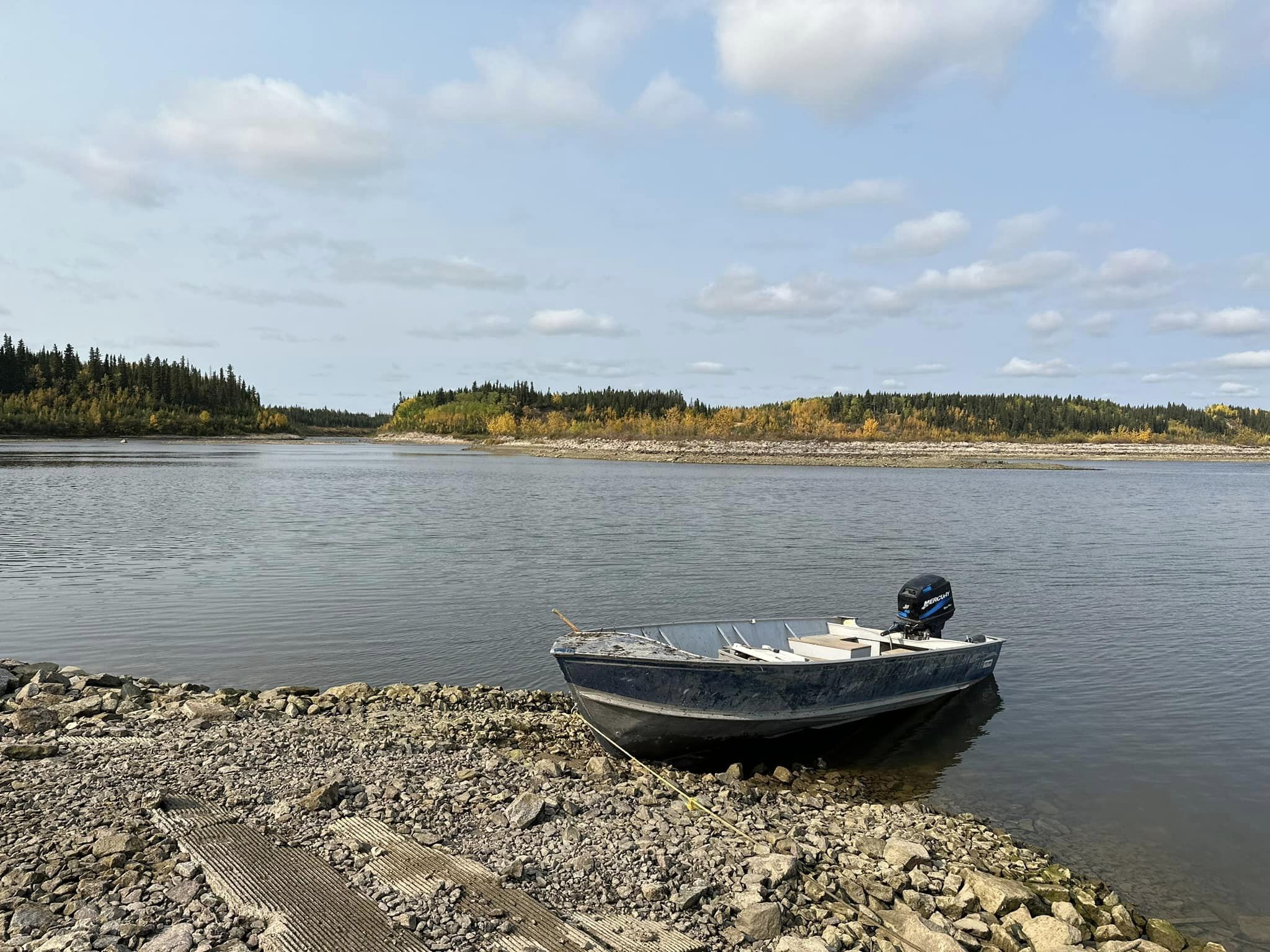
Waiting for grandpa with fishing rods in hand became a ritual for Saunders and his friend John. Although the young boys weren’t quite strong enough yet, they were eager to help. “We’d sit in the boat, and me and my buddy John, we’d make the trips back and forth from the boat to the house – we weren’t big enough to carry the tubs so we’d run back and forth, one fish at a time,” he says.
Soon enough, in a few years with grandpa’s teachings and guidance, Saunders was out trapping with him to provide for the community prior to reaching the age of 10.
“As we got older we started trapping at about 7 or 8 years old,” he says. “In late October we’d gather all of our bait with nets.”
By November 1st, Saunders and the elder grandpa would head out onto the waters to catch fish for the community.
The late fall season produced some treacherous conditions out on the water. “We’d go over some pretty big waves, we’d be up in the front going straight up, around, up and down,” says Saunders.
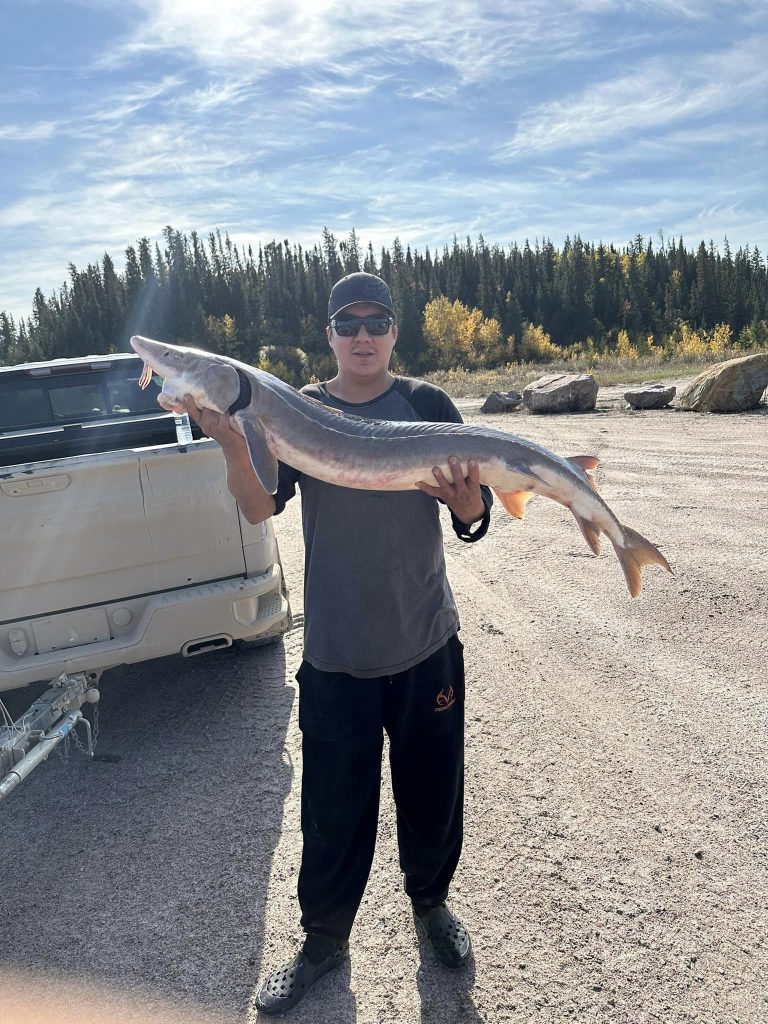
This was a safety hazard, and not wanting to put anyone’s life in jeopardy, grandpa would cut the day short and tell Saunders it’d be best for them to head home back towards land.
“He’d say, ‘It’s not worth it boys, we’re going home.’”
One of grandpa’s most memorable teachings was to always trust one’s intuition. “He always taught us to trust our gut feelings when we’re out in the land,” he says. “If you don’t feel safe, don’t do it because one wrong move and you’re not going home.”
Today, in his late 20s, Saunders is a father of five who teaches and mentors the youth in Makeso Sakahikan (Fox Lake/Gillam) about the traditional ways of life. Like grandpa taught him, Saunders tells the youth to always follow that gut feeling while out on the land because their families are waiting for them to come home – passing down that traditional education.
“I hope to carry that tradition on to our youth up in the North for their generations and their kids,” he says.
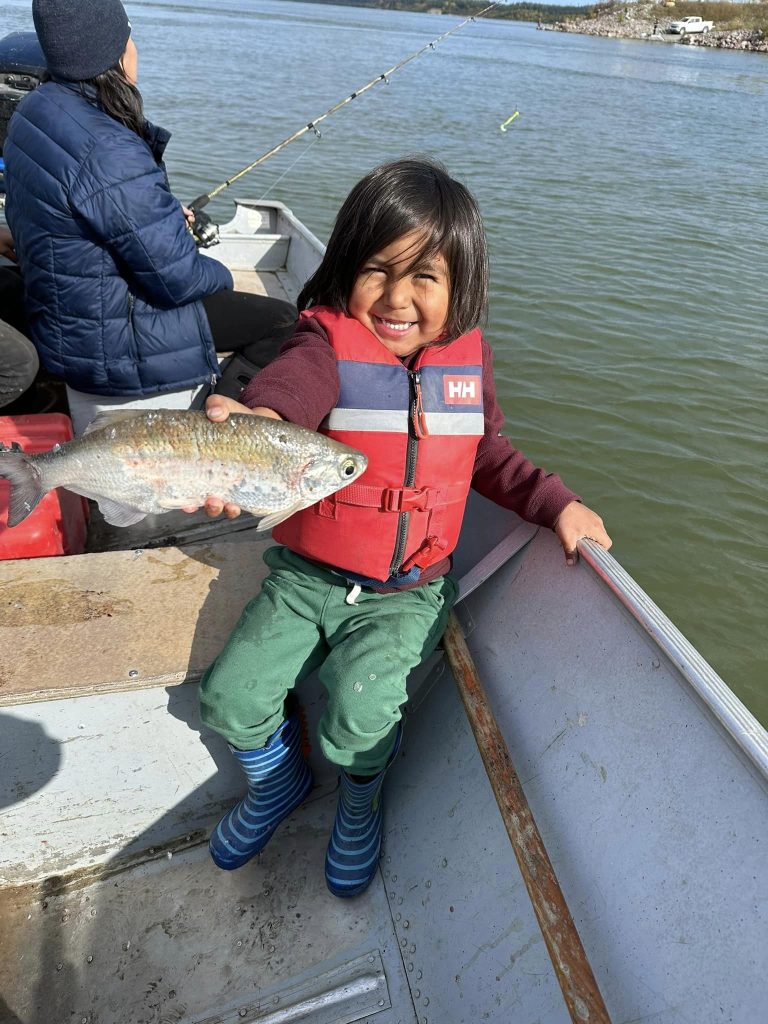
Historically in Canada, the concept of Indigenous peoples’ education has been focused on the assimilation of Indigenous peoples into Eurocentric views, or segregation from their own communities. But traditional Indigenous education centres respect, reciprocity, reverence, humility, and responsibility that is connected to the land through Indigenous knowledges. According to an article published by UNESCO, a UN agency that promotes world peace, there is no singular definition of Indigenous education as it means something different for different people. However, Indigenous communities do share a focus on multi-faceted concepts – the importance of language, storytelling, cosmologies and world views, and land protections and rights, to name a few, are all vital in traditional Indigenous education. Traditional teachings have diminished as a result of colonization and the residential school system, but Food Matters Manitoba (FMM) with the help of their Northern partners, are helping to foster Northern Indigenous youths’ traditional education through land-based education – getting them back to their roots.
“(Indigenous education) is all about relating to the land,” says Gordon Walker, FMM’s Northern partner and traditional harvester in Kinosao Sipi (Norway House).
Indigenous education is a mutually respectful and reciprocal relationship with the land, and passing along that education shows younger generations how to provide for themselves and their communities.
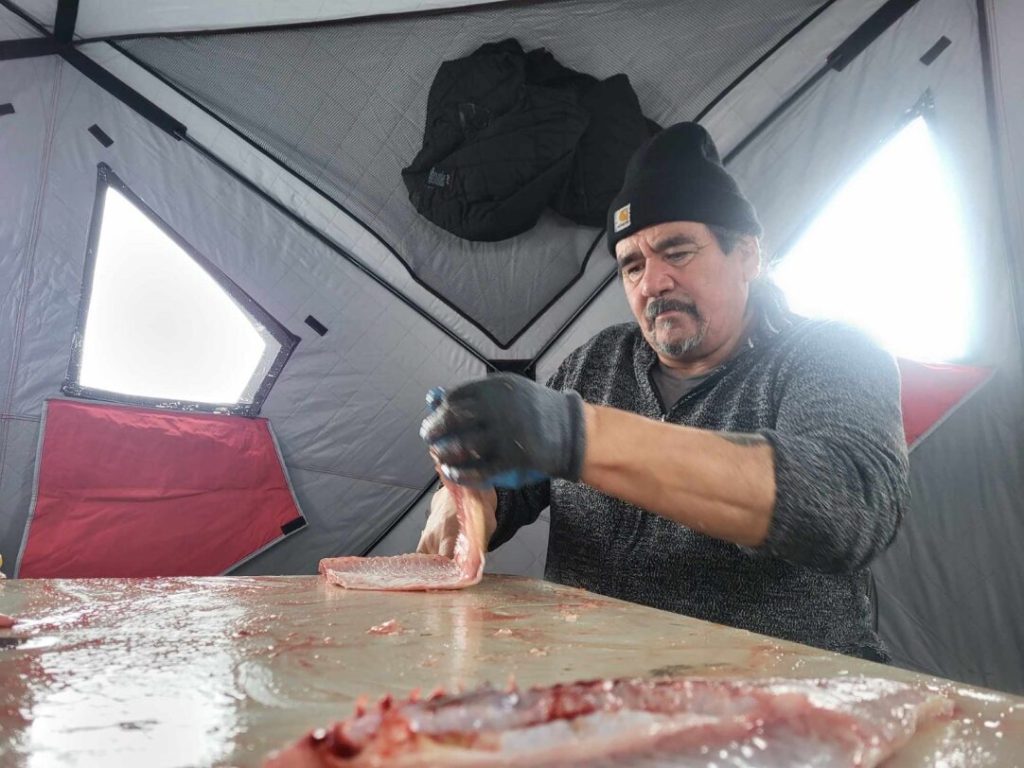
Oral teachings passed down to Walker while young taught him the calendar and what time of year it was best for harvesting different traditional food sources – teachings that have served him throughout his life.
“(They’d say) I will meet you there when the strawberry flowers come out, I will meet you there when the raspberries are ripe,” he says. “We will go fishing, we will go set our nets when the fish flies come out – everything has to do with the land.”
The teachings always refer back to the land, and they’ve stuck with Walker to this day. “I still remember those things they’d use about the calendar,” he says.
The education Walker received benefited him and his community .
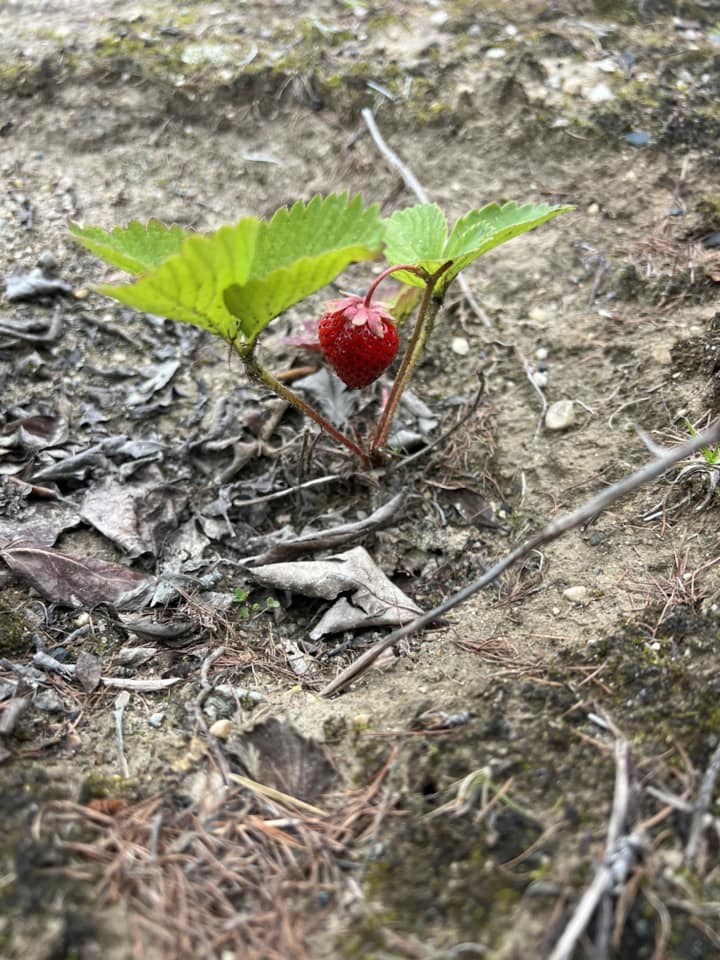
In order to preserve the traditional ways of life, Walker is adamant that it’s essential to pass along traditional Indigenous education to younger generations.
Alex Wilson of Opaskwayak Cree Nation and Indigenous land-based graduate program leader at the University of Saskatchewan, states in the UNESCO article, how important the passing on of knowledge to other community members, and to the next generations for traditional Indigenous education is – not only for Indigenous peoples to learn their traditional ways of living, but to form connections with oneself, also.
“(Indigenous education) is also a form of understanding our place within, and our responsibility to the wider universe,” she says.
Throughout colonization’s history, Indigenous education has not held the same recognition as Eurocentric education. Chris Googoo, a member of the We’koqma’q First Nation, says it’s important to recognize that colonization served to suppress the awareness that traditional Indigenous education was education.
“Whenever we wanted to share knowledge, if it went against certain values in the science world or in certain ideologies – Catholicism being the main one – our knowledge was considered a kind of blasphemy at the time,” says Googoo in the UNESCO article.
But traditional Indigenous education has paved the way for success in the community for community members and traditional harvesters like Myron Cook in Kisipakamak (Brochet).
Cook says a popular form of education growing up was learning through storytelling. “Storytelling is a big thing for them (the elders), it’s the way they pass down the teachings and the knowledge to the next generation,” says Cook who is FMM’s Community Project Coordinator.
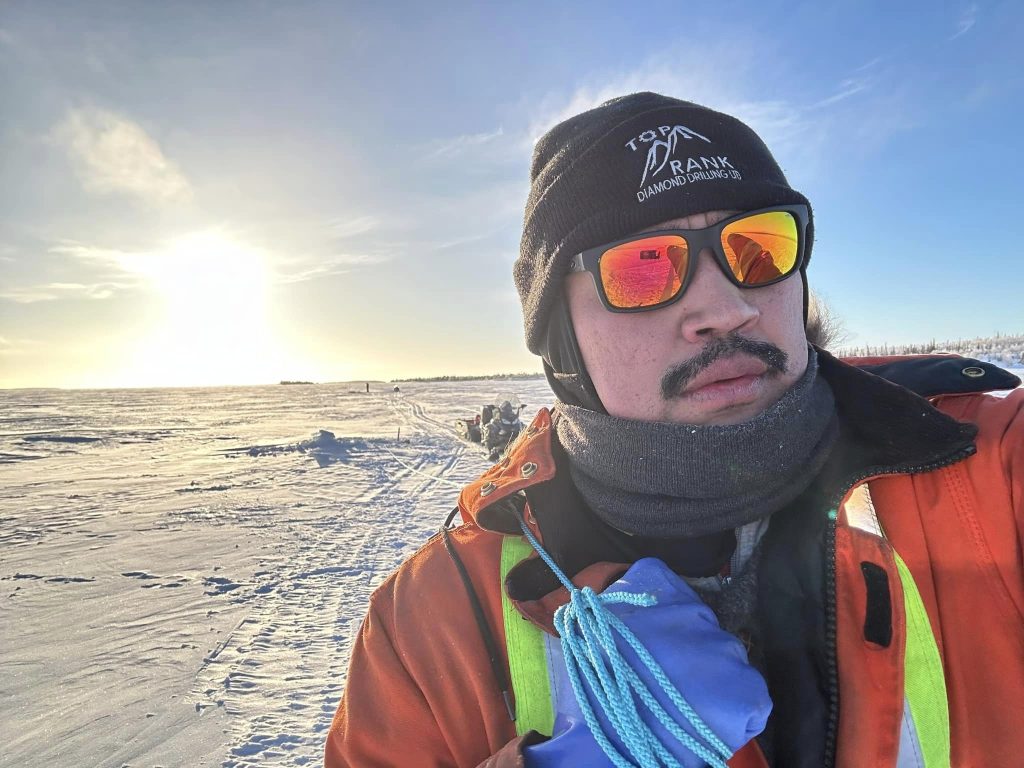
A story he learnt young that has cemented itself into his memory, is the story of one’s symbiotic relationship to the land – when you’re out on the land working, you sweat. The water from your body evaporates to the sky, turning to rain. The rain is released by the clouds feeding the land – it feeds everything, the lakes, the trees, the animals, every living organism. “So, when you see a tree, that’s actually the sweat of your ancestors,” he says.
Over the years growing up and absorbing the traditional education of his people as a student, Cook has learnt to respect the land, to take only what he needs. “Everything has a spirit – every tree, every organism, you learn to respect it,” he adds.
Storytelling is proven to be a powerful and effective teaching method for young learners – it forges connections between people and ideas – conveying culture, history, and the values that unite communities and people.
“We tell stories to learn, we tell stories to the young people so that they will remember these words, these teachings,” says Walker.
From a young age Cook has been hunting and gathering out in the land – skills he picked up through his father’s education.
Traditional teachings were important to Cook’s father. He strongly believed in passing down harvesting knowledge, even if that meant missing a bit of school.
“My father always saw it as necessary and important to pull us out of school to go out in the land – whether it be moose hunting or geese hunting, it was always an educational experience,” says Cook.
Being taught how to harvest by his father and older brother is one of Cook’s earliest childhood memories – one he looks back upon fondly.
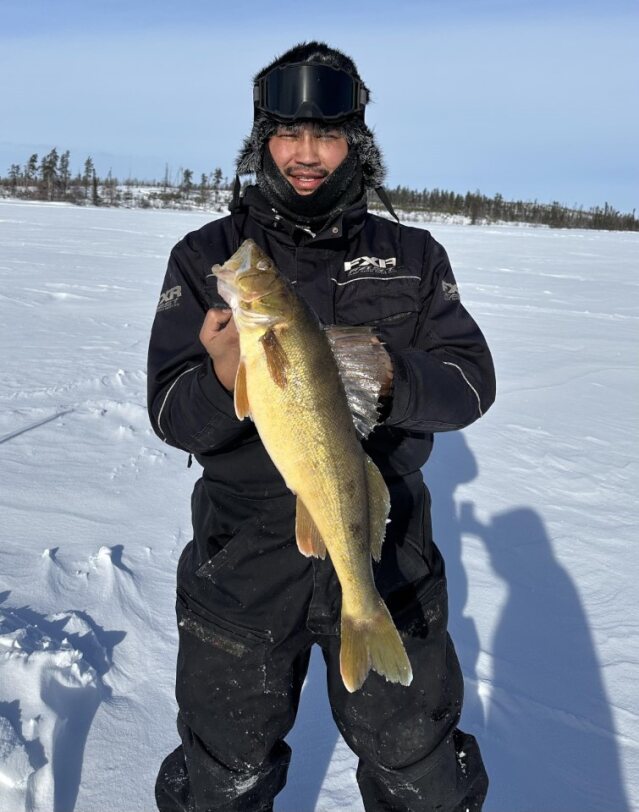
At eight years old, Cook went out with his father and older brother to harvest for their community. At some point, the family spotted a moose. Cook’s father and brother took the opportunity to teach the youngster how to attract the moose in order for them to get a clear sight so they could take aim.
“They made me a little moose call – I called the moose, then they left and the moose was coming around to the point, it was coming to my moose call,” he says. “We went around and I remember they started shooting the guns – I was scared, 8 year old little boy, holding my ears.”
Despite his temporary fear as he tried to block out the loud sounds of gunfire, Cook’s moose call had been successful – the moose was harvested and shared amongst the community of Kisipakamak.
As he’s grown older, Cook sees how important the traditional education his father gave to him as a child was. The traditional ways of life he learnt now serves him as an adult in Kisipakamak who works with the youth as FMM’s Community Project Coordinator. Cook takes the youth out onto the land to show them how to harvest for their own communities so they can learn the same teachings, share amongst each other, and pass the knowledge onto the next generation – a cycle of education and preservation.
The traditional education that FMM’s Northern partners have received as children and young adults have helped to pave the way for a rich and fulfilling life.
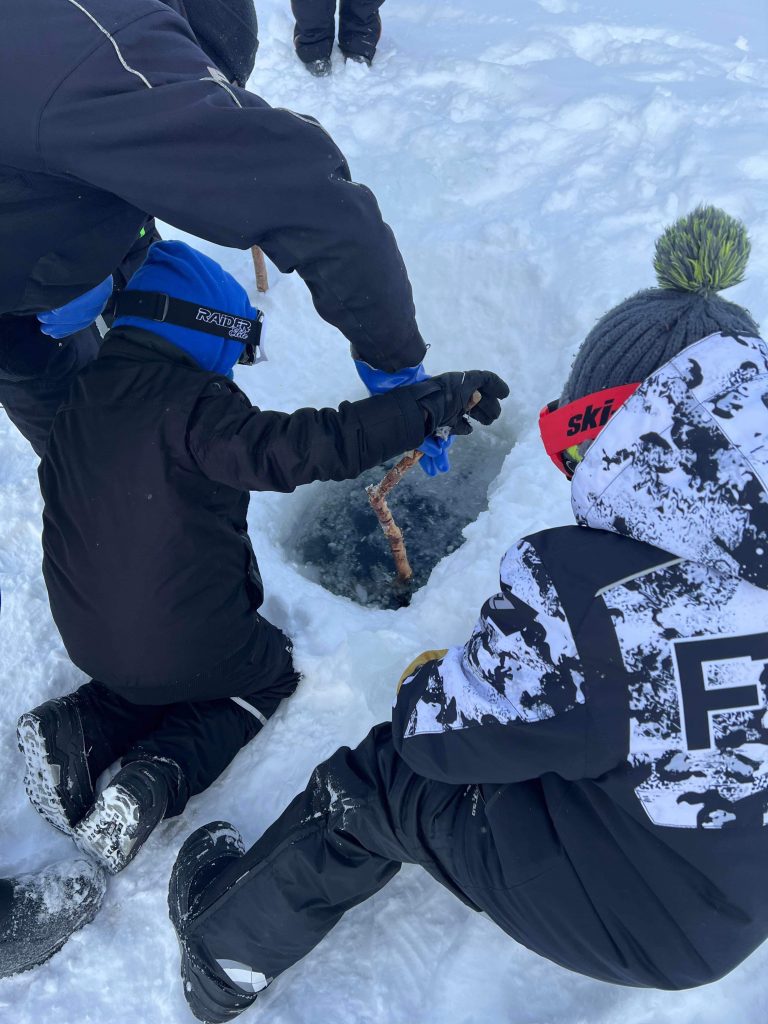
Passed down through traditional teachings is the warmth of connection to each other and the land, explains FMM’s Executive Director, Demian Lawrenchuk.
It was through the teachings and mentorship of an elder named Robert in Makeso Sakahikan, that Lawrenchuk says helped put him on the path to success.
“He embraced me with open arms, and day after day he began to take me out and mentor me,” he says. “We got to the point where we’d be sleeping out in the bush for half a year.”
The other half of the year was spent out on day trips harvesting for the community. The pair became so close that even Lawrenchuk’s father began to refer to him as Lawrenchuk’s dad.
Robert held those teachings, which he passed down to Lawrenchuk by taking him under his wing. Robert didn’t speak of strength or what they needed, but of kindness, and that’s what he modeled for Lawrenchuk.
“It was spending all that time with him that put me on the path to understanding how to be a man and how to be a good person above all else,” he says.
Passing on the traditional knowledge to youth is vital for the perseverance of Indigenous teachings and knowledges.
Cook focuses on working with the children who are less fortunate in the community, those who don’t have family to educate them about the traditional ways of life. He is adamant that the work he does with FMM is so important for bringing back traditional education.
“A lot of our traditional ways are being lost which is why it’s so important to implement Indigenous education – to have more people and more organizations to advocate for us,” says Cook.
He believes spreading those teachings is vital so the younger generations can pass along their education to their children and their children’s children – fanning the sparks of traditional Indigenous education for generations to come.
“This program we’re doing with FMM, we’re bringing it back,” he says.
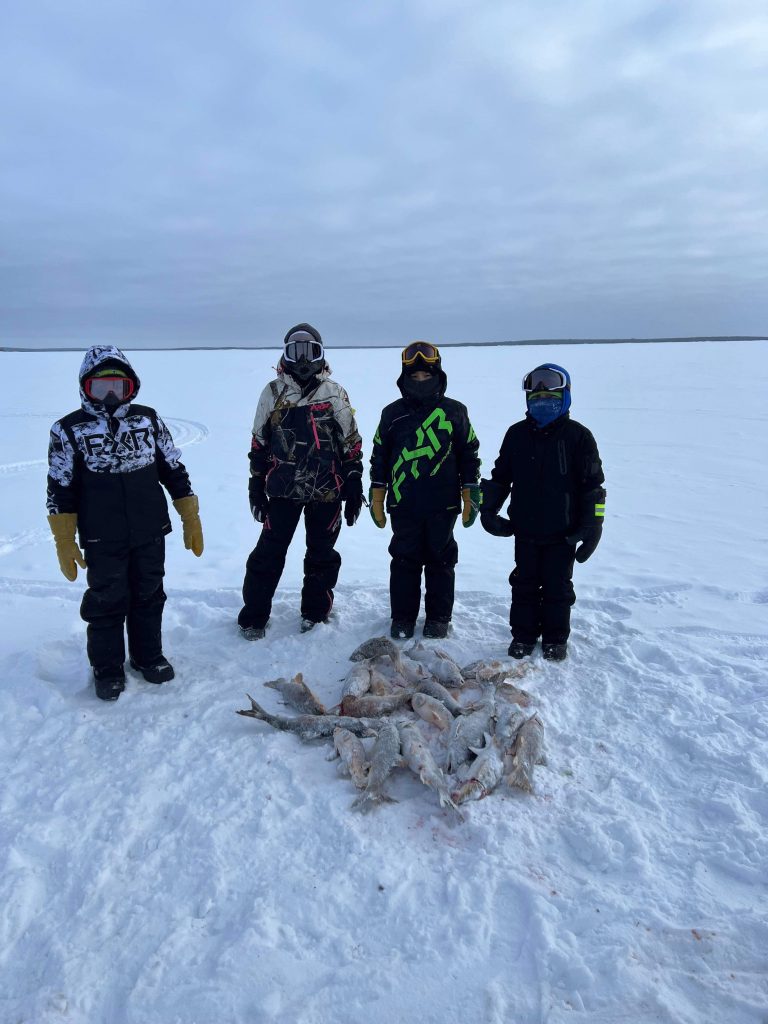
** With files from the Indigenous Education Gathering, February 8, 2024, hosted by The Manitoba Collaborative Indigenous Education Blueprint (MCIEB)

